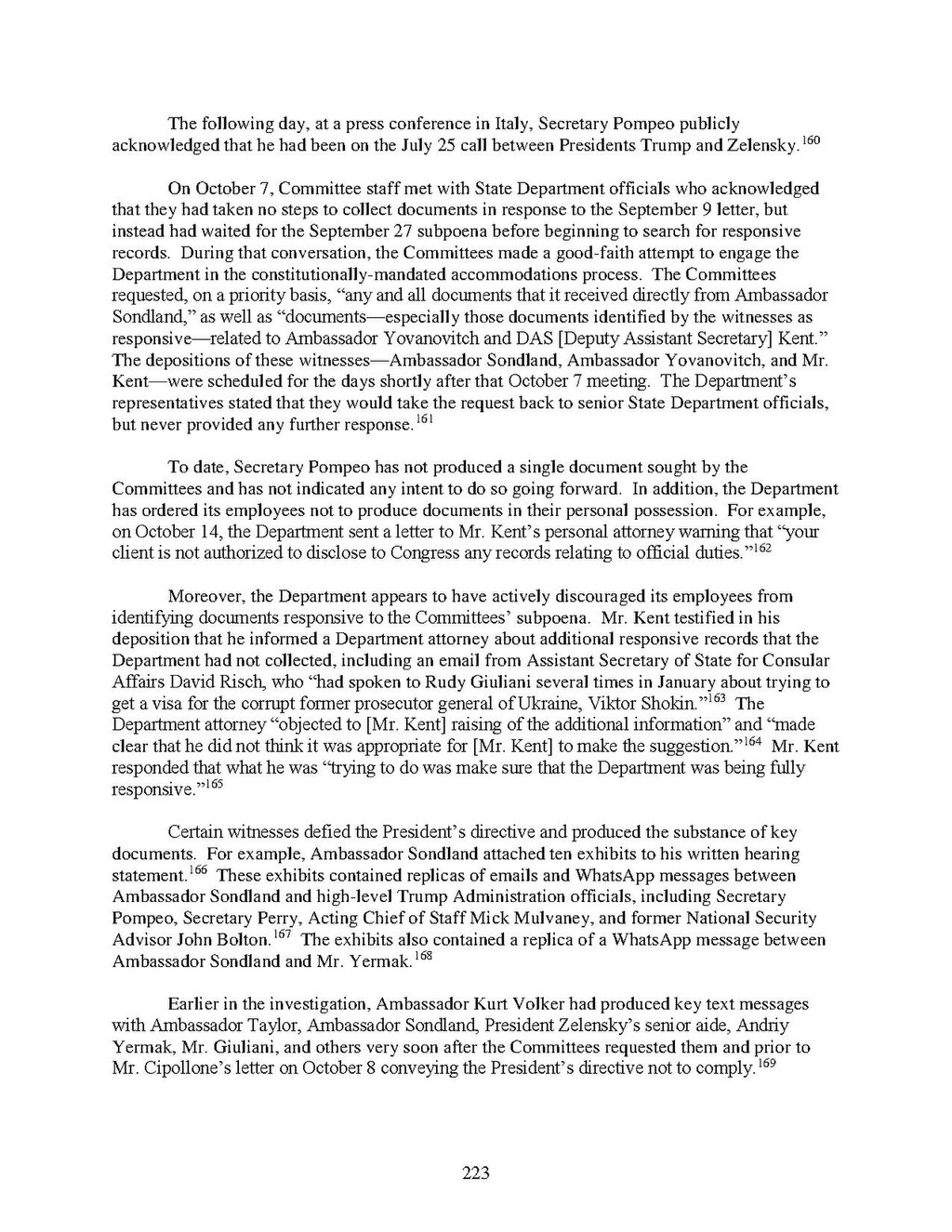The following day, at a press conference in Italy, Secretary Pompeo publicly acknowledged that he had been on the July 25 call between Presidents Trump and Zelensky.160
On October 7, Committee staff met with State Department officials who acknowledged that they had taken no steps to collect documents in response to the September 9 letter, but instead had waited for the September 27 subpoena before beginning to search for responsive records. During that conversation, the Committees made a good-faith attempt to engage the Department in the constitutionally-mandated accommodations process. The Committees requested, on a priority basis, “any and all documents that it received directly from Ambassador Sondland,” as well as “documents—especially those documents identified by the witnesses as responsive—related to Ambassador Yovanovitch and DAS [Deputy Assistant Secretary] Kent.” The depositions of these witnesses—Ambassador Sondland, Ambassador Yovanovitch, and Mr. Kent—were scheduled for the days shortly after that October 7 meeting. The Department’s representatives stated that they would take the request back to senior State Department officials, but never provided any further response.161
To date, Secretary Pompeo has not produced a single document sought by the Committees and has not indicated any intent to do so going forward. In addition, the Department has ordered its employees not to produce documents in their personal possession. For example, on October 14, the Department sent a letter to Mr. Kent’s personal attorney warning that “your client is not authorized to disclose to Congress any records relating to official duties.”162
Moreover, the Department appears to have actively discouraged its employees from identifying documents responsive to the Committees’ subpoena. Mr. Kent testified in his deposition that he informed a Department attorney about additional responsive records that the Department had not collected, including an email from Assistant Secretary of State for Consular Affairs David Risch, who “had spoken to Rudy Giuliani several times in January about trying to get a visa for the corrupt former prosecutor general of Ukraine, Viktor Shokin.”163 The Department attorney “objected to [Mr. Kent] raising of the additional information” and “made clear that he did not think it was appropriate for [Mr. Kent] to make the suggestion.”164 Mr. Kent responded that what he was “trying to do was make sure that the Department was being fully responsive.”165
Certain witnesses defied the President’s directive and produced the substance of key documents. For example, Ambassador Sondland attached ten exhibits to his written hearing statement.166 These exhibits contained replicas of emails and WhatsApp messages between Ambassador Sondland and high-level Trump Administration officials, including Secretary Pompeo, Secretary Perry, Acting Chief of Staff Mick Mulvaney, and former National Security Advisor John Bolton.167 The exhibits also contained a replica of a WhatsApp message between Ambassador Sondland and Mr. Yermak.168
Earlier in the investigation, Ambassador Kurt Volker had produced key text messages with Ambassador Taylor, Ambassador Sondland, President Zelensky’s senior aide, Andriy Yermak, Mr. Giuliani, and others very soon after the Committees requested them and prior to Mr. Cipollone’s letter on October 8 conveying the President’s directive not to comply.169
223
